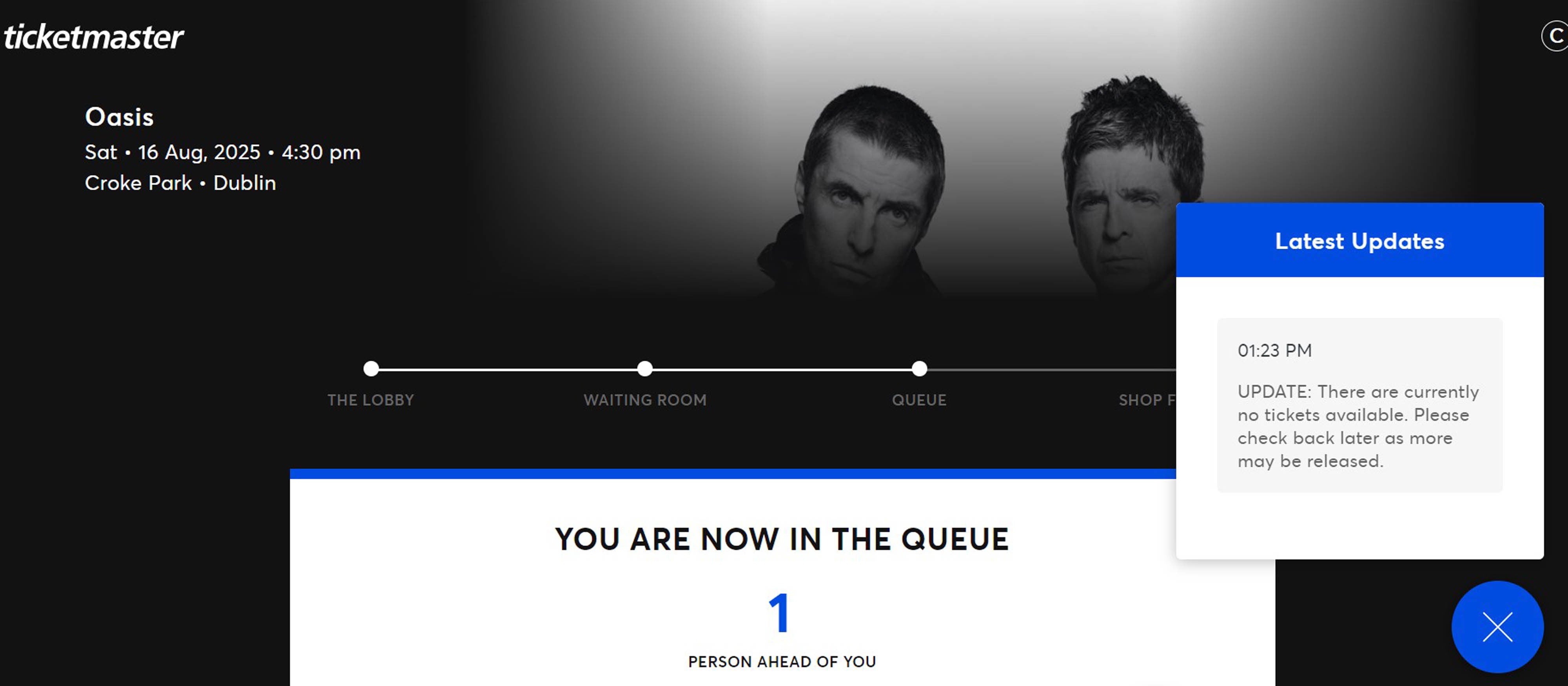Oasis: Ticketmaster’s dynamic pricing model under fire for band’s reunion tour – what you need to know
Some fans queued for hours to find tickets had more than doubled in price

Your support helps us to tell the story
From reproductive rights to climate change to Big Tech, The Independent is on the ground when the story is developing. Whether it's investigating the financials of Elon Musk's pro-Trump PAC or producing our latest documentary, 'The A Word', which shines a light on the American women fighting for reproductive rights, we know how important it is to parse out the facts from the messaging.
At such a critical moment in US history, we need reporters on the ground. Your donation allows us to keep sending journalists to speak to both sides of the story.
The Independent is trusted by Americans across the entire political spectrum. And unlike many other quality news outlets, we choose not to lock Americans out of our reporting and analysis with paywalls. We believe quality journalism should be available to everyone, paid for by those who can afford it.
Your support makes all the difference.Ticketmaster and Oasis have come under criticism for applying ‘dynamic pricing’ to tickets for the bands upcoming reunion tour, meaning fans were faced with costs far higher than they had expected.
Many took to social media to express their anger after finding that the price of standing tickets, orginially listed at £135, had risen to as much as £355 on the site. Some had queued for hours for an opportunity to secure a ticket, only for the price to have more than doubled.
Lisa Nandy has said she wants to ensure tickets are sold “at fair prices,” pledging to look into the dynamic pricing practice. The culture secretary added it was “depressing to see vastly inflated prices excluding ordinary fans.”
Ticketmaster has defended its dynamic pricing system, saying it did not set any of the ticket prices. The US-owned firm, which is the biggest ticket retailer in the world, says the system is in place to discourage ticket touts as prices are set closer to “market value.”

It also says the prices are agreed with artists and their management beforehand. Ticketmaster is also not the only site that applies the practice, which is allowed under consumer protection laws.
The Lib Dem culture spokesperson, Jamie Stone MP, said: “It is scandalous to see our country’s biggest cultural moments being turned into obscene cash cows by greedy promoters and ticketing websites. The Oasis ticket fiasco must be a watershed moment and lead to an official investigation, either by the watchdog or a parliamentary body.”
In its election manifesto, Labour has pledged to crack down on ticket touts, where secondary sites or individuals sell tickets at inflated prices, with a consultation set to come in the autumn. However, this is not the same as Ticketmaster’s dynamic pricing, which happens on the primary seller’s site and is agreed to by the artist.
What is dynamic pricing and how does it work?
Dynamic pricing is when ticket prices are increased on primary selling sites – such as Ticketmaster – based on demand. In the case of the recent Oasis ticket sales, customers queued for hours to secure a ticket, but were faced with prices labelled “in demand” upon reaching the front.
Standing tickets at one venue were increased to £337.50 plus fees, despite having an original face value of £135. In Ireland, tickets for the band’s Croke Park gigs in Dublin were increased from €86.50 (£75) to €415.50 (£350). Ticketmaster introduced the system in 2022.

The model is not dissimilar to that used by airlines, hotels and some taxi services. However, it has drawn comparisons to ticket touting, where ticket prices are massively marked up by a secondary seller to capitialise on high demand.
Labour has not committed to a crackdown on dynamic pricing by primary ticket sellers so far, but minsiters’ recent comments may suggest the issue could be looked at.
The European Commission addressed dynamic pricing last year, saying it was aware and “monitoring the situation.” The EU executive arm said “imposition of excessive prices by a dominant company” is prohibited by EU law.
The US Department of Justice announced this year it was suing Ticketmaster parent compnay Live Nation for issues relating to “monopolisation” and unfair competition practices.
Join our commenting forum
Join thought-provoking conversations, follow other Independent readers and see their replies
Comments